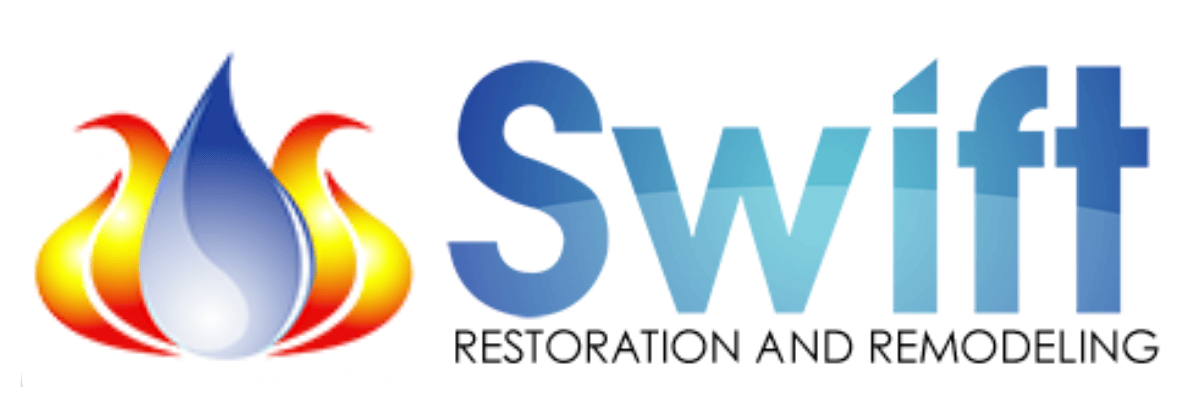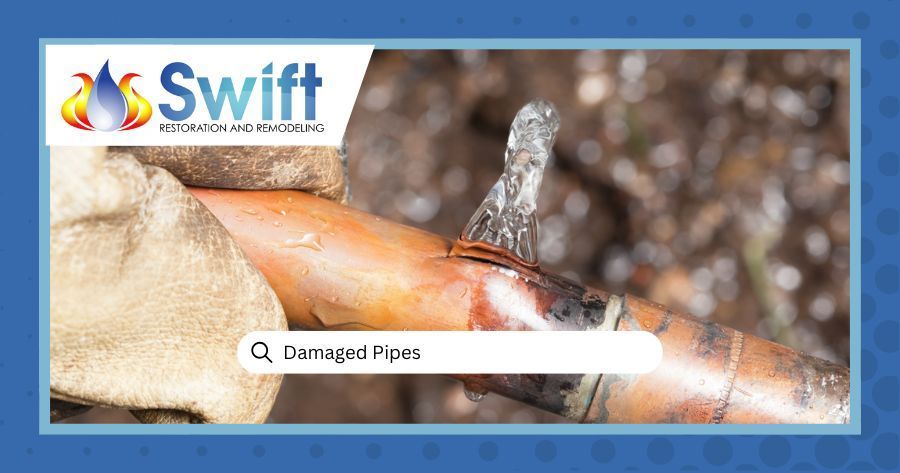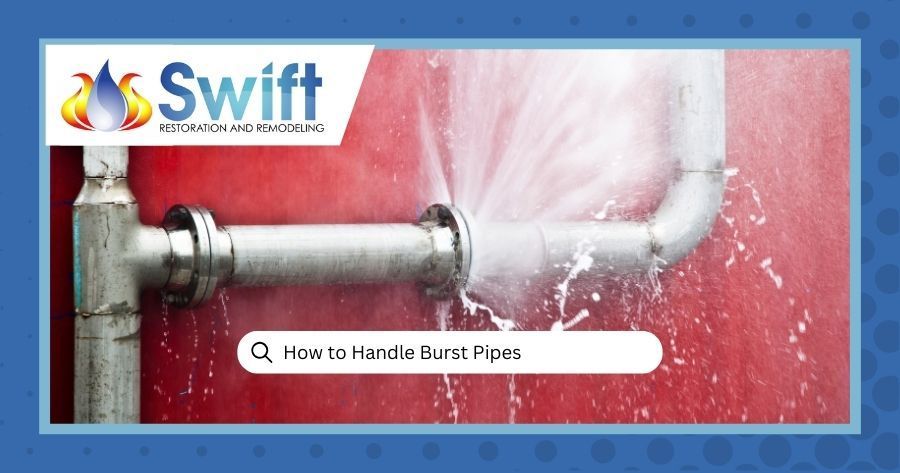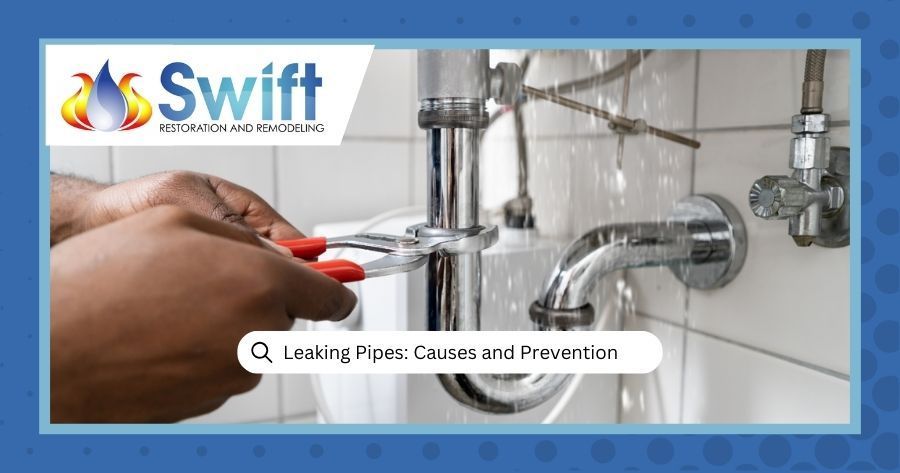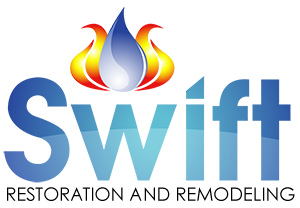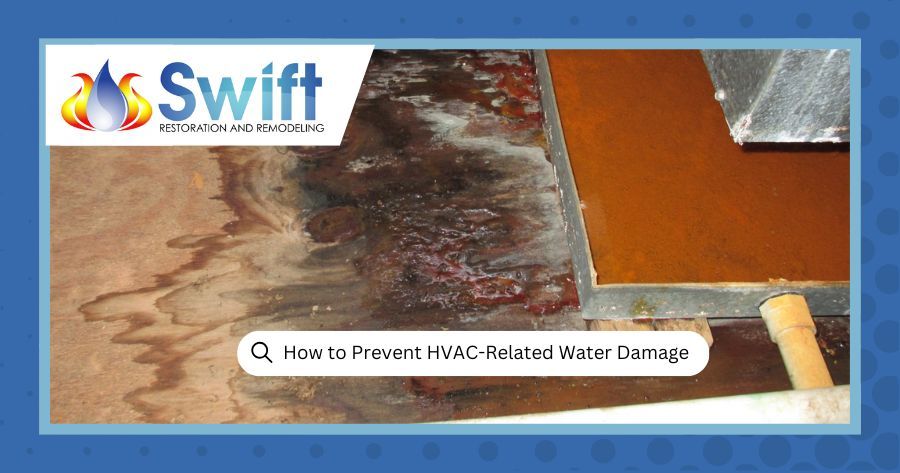
When people think of water damage, they often imagine floods, leaking roofs, or burst pipes. However, one often overlooked scenario in homes and buildings is HVAC-related water damage, especially the air conditioning unit. Over time, even small issues with your HVAC system can lead to serious damage, including mold, rotting drywall, and warped flooring.
At Swift Restoration and Remodeling, we frequently respond to calls where water damage was caused by HVAC systems that could have been prevented. Understanding how your system works and what can go wrong is the first step in avoiding unnecessary repairs and water damage restoration services in Ogden.
How Can HVAC Systems Cause Water Damage?
Can an air conditioner really cause water damage? HVAC systems are there to regulate the temperature and airflow in your home, but they also create condensation, especially during the cooling process. If that condensation isn’t drained properly, it can start creating leaks and damaging surrounding areas.
Here are some common HVAC problems that can lead to water damage:
Blocked Drain Lines
One of the most common causes of HVAC-related water damage is a condensate drain line that gets clogged over time. As dust, dirt, algae, and mold build up in the drain, they prevent water from flowing out. When the line is blocked, water backs up and leaks into your home. This is a common example of hidden water damage problems that homeowners often miss.
Rusty or Damaged Drain Pans
Drain pans are designed to catch water from your AC unit. But if the pan is rusted, cracked, or improperly aligned, water can overflow and soak the area around the unit, causing damage to the floor and walls.
Improper Installation
If the HVAC system isn’t installed correctly or if it’s not level, water could have trouble draining properly. Poor installation can also affect airflow, which may lead to ice buildup on the evaporator coil. When the ice melts, the excess water can leak inside your home.
Low Refrigerant Levels
Low refrigerant causes the evaporator coil to freeze. Once it thaws, the melted water can overwhelm the drainage system and cause leaks.
Poor Insulation and Ventilation
If the HVAC system is not insulated the way it should be or if ventilation is poor, condensation can form outside the unit, on ducts, or nearby walls, for example, leading to hidden moisture and eventually causing mold or mildew to grow.
Top Tips for Preventing HVAC-Related Water Damage
Preventing HVAC water damage is as simple as establishing a maintenance routine and knowing what not to do after water damage. Here are some practical ways to make sure everything’s in order and your home’s protected:
Have Regular HVAC Inspections
Have a professional HVAC technician inspect and service your unit at least once a year. They’ll check for signs of wear and tear, clean out the drain lines, and make sure everything is working properly. These routine checks are an essential part of any water damage prevention strategy.
Clear the Condensate Drain Line
Use a wet/dry vacuum or a solution of vinegar and water to flush out the drain line every few months. This will help prevent clogs caused by algae or sediment buildup.
Check the Drain Pan
Look under your unit to inspect the drain pan for any cracks or rust. If it’s damaged, replace it right away.
Install a Float Switch
A float switch detects when the drain pan is full and will automatically shut off the AC unit to prevent overflow and alert you before damage occurs.
Keep an Eye on Moisture
Check for water stains, musty smells, or damp drywall near the HVAC unit as these are early signs of water damage, leaks, or condensation problems.
Promote Airflow and Ensure Enough Insulation
Make sure that ducts are properly insulated and that there’s adequate airflow around the HVAC unit to avoid condensation on surfaces.
How We Can Fix Your HVAC-Related Water Damage
At Swift Restoration and Remodeling, we specialize in identifying and repairing HVAC-related water damage. Whether it’s water-stained ceilings, moldy drywall, or warped flooring near your AC unit, our team is trained to find the problem before it spreads, fix the damage, and prevent it from returning.
We understand how important it is to act fast when dealing with water damage. Whether it’s a ceiling stain, warped baseboard, or mold growth from water damage, we use advanced moisture detection equipment to find leaks in hidden areas. We are at your disposal 24/7 to provide quick and professional service in Ogden, UT, and the surrounding areas.
Our services include:
- Water damage inspections and assessments
- Moisture detection and mold prevention
- Structural drying and dehumidification
- HVAC system area repairs and insulation upgrades
- Full restoration of affected materials
Call Swift Restoration and Remodeling Today for Expert Water Solutions!
If you suspect your HVAC system is causing water damage, or if you've already noticed leaks or moisture, don’t delay the repairs. Call Swift Restoration and Remodeling at (385) 412-8633 today, or fill out this form for a free estimate! Our experienced team is ready to respond quickly, inspect your property, and provide reliable solutions to get your home or business back to normal!
